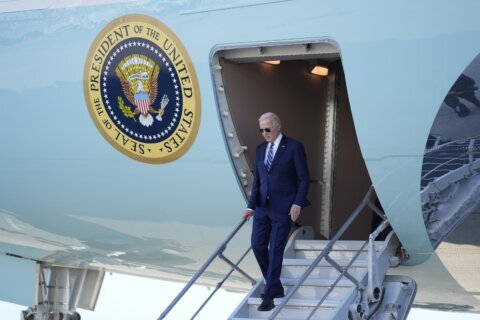NEW YORK (AP) — A suspected officer with Russia’s Federal Security Service was among seven people charged by U.S. prosecutors Tuesday with smuggling sensitive electronic components to help Russia’s military effort.
Prosecutors claimed the seven worked with two Moscow-based companies controlled by Russian intelligence services to acquire electronic components in the U.S. that have civilian uses, but can also be used to help make nuclear and hypersonic weapons and in quantum computing.
The exporting of the technology involved is heavily regulated and occurred in violation of U.S. sanctions, according to a 16-count indictment unsealed Monday in Brooklyn.
Five Russian nationals were charged, including Vadim Konoshchenok, a suspected officer with Russia’s Federal Security Service, or FSB. He was arrested in Estonia last week and will undergo extradition proceedings to the United States, U.S. authorities said.
“The Department of Justice and our international partners will not tolerate criminal schemes to bolster the Russian military’s war efforts,” Attorney General Merrick B. Garland said in a statement announcing the charges.
About 375 pounds of ammunition originating from the United States was found by Estonian authorities in a warehouse used by Konoshchenok, according to federal prosecutors.
The four other Russian nationals remain at large.
Also arrested and charged were Alexey Brayman, a lawful U.S. resident living in Merrimack, New Hampshire, and Vadim Yermolenko, a U.S. citizen living in Upper Saddle River, New Jersey.
Brayman’s attorney David Lazarus said in an email that his client has not been convicted of anything and is entitled to the presumption of innocence.
Yermolenko’s attorney said via email she had no comment.
Attorney information was not immediately available for the other defendants.
U.S. officials said the arrests had disrupted the procurement network allegedly used by Russian intelligence services, which they said had been operating as far back as 2017.
U.S. scrutiny of efforts to evade sanctions on Russia intensified after the invasion of Ukraine last winter.
Copyright © 2024 The Associated Press. All rights reserved. This material may not be published, broadcast, written or redistributed.







